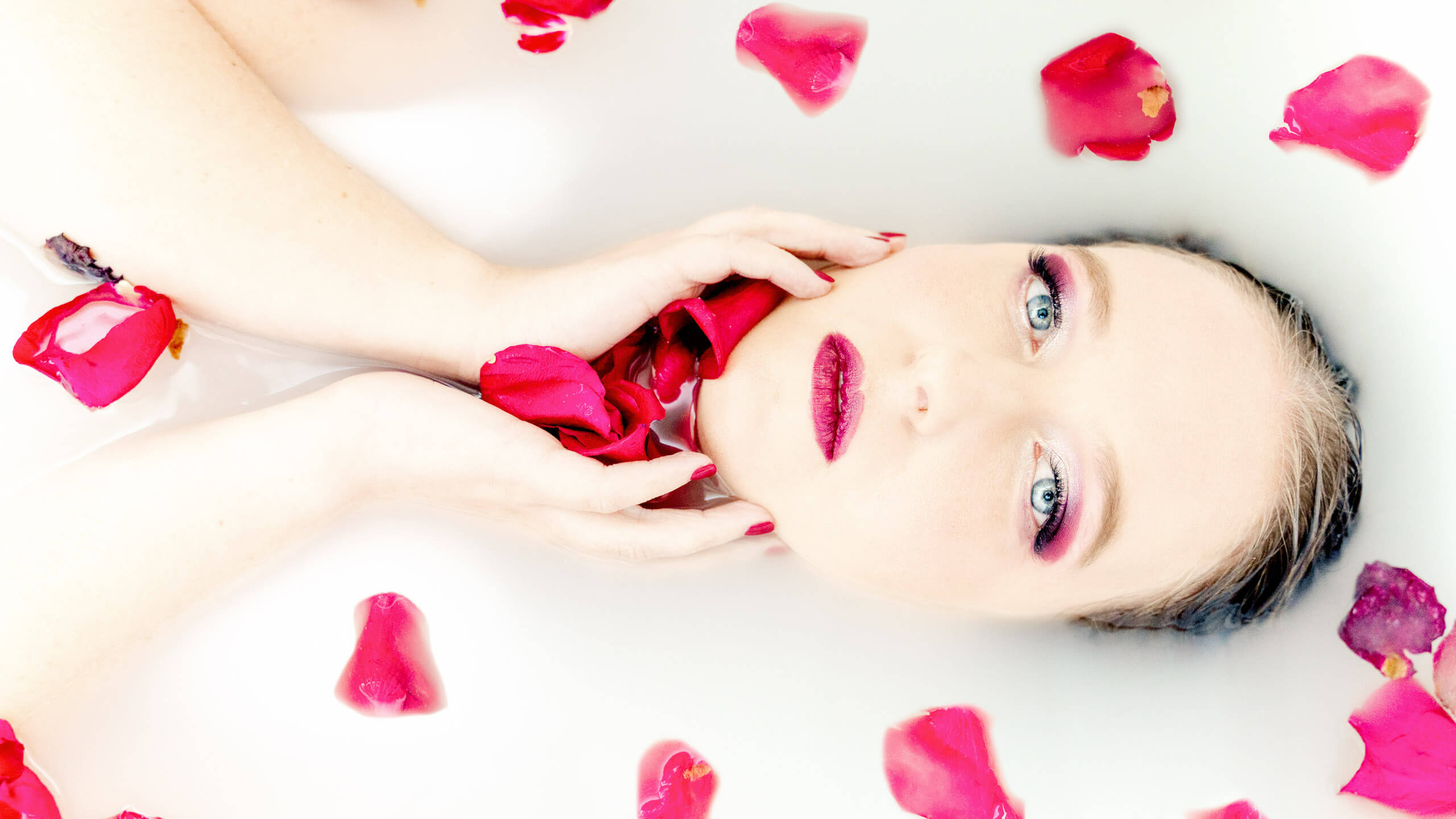Milk bath photography was all the rage a few years back. Back then, I was using a kiddie pool in the garage. It worked but had its drawbacks. So, when I was recently approached to do a rose petal milk bath with a more fashion twist, we decided to actually use a bathtub. Here is what we did.
The setup
I made sure my bathtub was big enough, and there was enough room to move and plenty of light. I used a 28mm lens to get as much in the frame as possible. I did try with a speedlight but found I preferred the natural morning light from the window above the bath. I bought and used two sachets of Milk Bath Powder, but sadly not enough. I ended up adding 1 liter of long-life cow’s milk. I have used almond milk in the past as well. I should have bought four sachets of powder for my size bath at a guess.
Next, we added rose petals. I have previously found that dried flowers floated very well, so we used dried rose petals again. We also had a single red rose (left over from Valentine’s Day) which actually worked even better and looked more luxurious than the dried ones. The dried petals also changed the color of the milk water to a gross dirty color by the time we had finished. Next time, I would use all fresh petals.
We had our model wearing white lingerie so it wouldn’t stand out against the milk, but also allowed for modesty, as much as possible. Our makeup was toned into the dried roses. However, I think we should have toned it to the fresh rose.
Pros
The milk bath powder in the warm water was apparently quite luxurious and my model said it felt wonderful. A towel in the bottom of the bath gave height to the head with comfort. Also, it was a little less slippery with a towel in the bottom of the bath (use white if possible).
The clean-up was super easy in the bath. We scooped out the petals and added them to the compost pile. Then just let the plug out of the bath. Easy! As it was in the bathroom my model could easily step out of the bath and rinse off in the shower. Again, easy.
The red rose made our colour scheme work (red and white) and looked beautiful, especially the fresh rose, which we then broke apart to add to the water.
Cons
Limited movement and frames are available with any real diversity. Well, in my opinion. I did get some lovely shots, just not much variety in poses. I made sure I had enough light and room, I did not want to stand on a ladder or the edge of the bath. I feel THAT is fraught with danger. If you cannot get your entire bath in frame, consider doing a half bath, which we ended up doing anyway.
Working out how much powder to use was our biggest problem, I wanted it quite milky that it was opaque. If you just want it a little milky, you could use less. I suggest a test run in a full bath. I did a test run in a bucket and misjudged, but a LOT.
The water did go a gross dirty color after about 20 minutes. Also, my model started to prune up about this time too. Plus the water was going cold. If the water is cold, especially to begin with the model’s skin may start to turn a slight blue color and goose bumps can appear, making it more difficult to edit.
Camera settings
Sony a7RIII, Tamron 28-75mm lens, natural window light. Manual mode, 28mm – 36mm, ISO 800-1600, f/2.8, 1/160 seconds handheld.
Unedited SOOC
Final edit
Full disclosure: I did edit my shots heavily to make the water more creamy, I also added in some extra petals in post. I suggest grabbing some images without the model, just of the petals to do just this. A little bit of Photoshop magic was also required to get rid of the edge of the bathtub. Again, personal preference. I also brightened my images considerably, as I was after a more high-key fashion-styled rose petal milk bath series. Perhaps you are after something slightly different?
Model: Emily Reinhard
Makeup: Teighan Felton
Source link








Leave a Reply